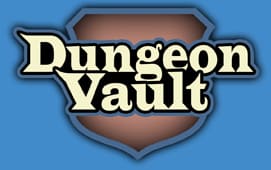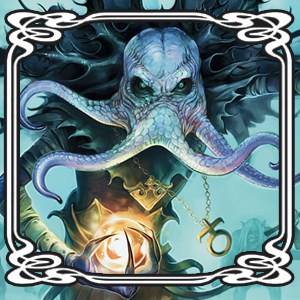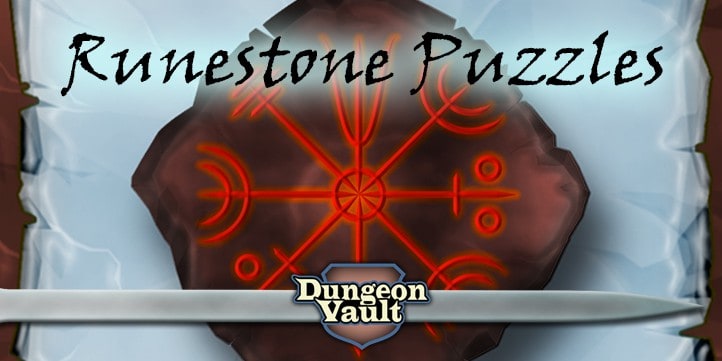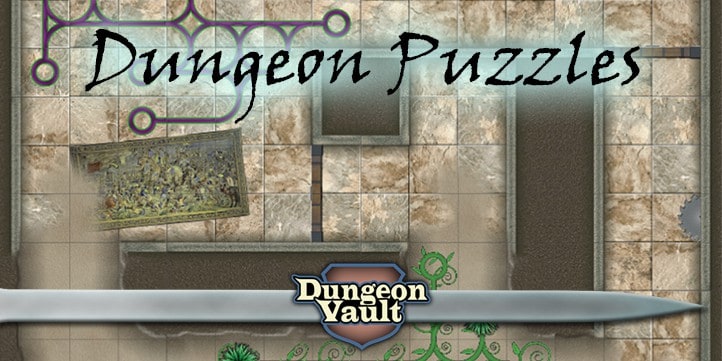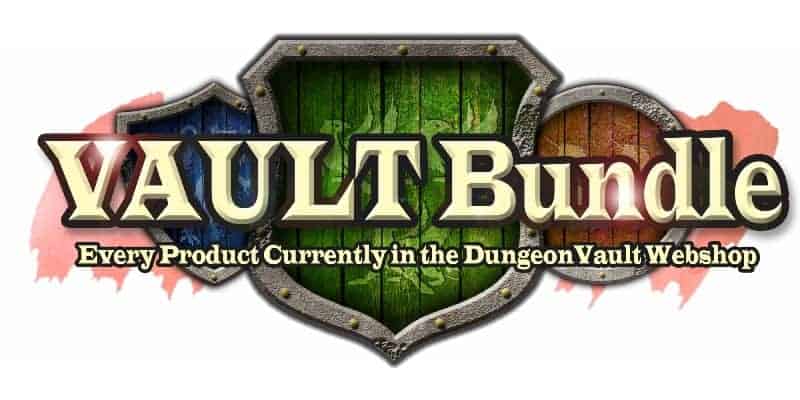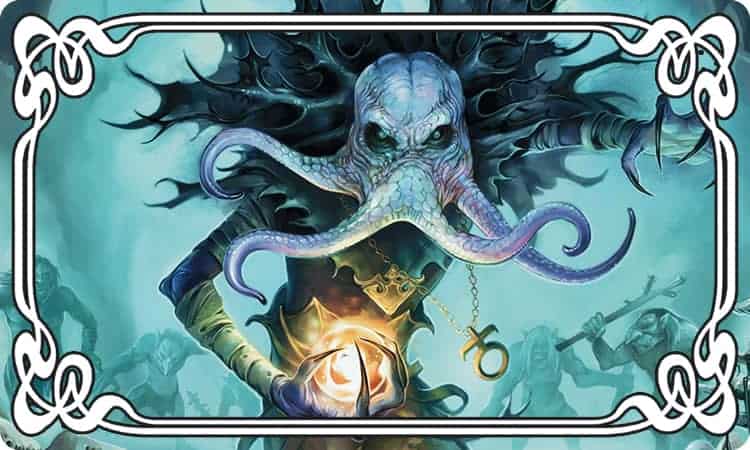
Wouldn’t it be cool if you could just push a button to generate a D&D puzzle that is fully illustrated and ready to use?
Well, unfortunately, I don’t have such a generator. But I do have an alternative D&D puzzle generator that works just as well, but cooler. Intrigued? Okay, I’ll spill the magic beans. But first, allow me to explain why you shouldn’t use generic puzzle generators.
If you just want to get to the generators instead, scroll down to the Lock puzzle generator, rune puzzle generator, and dungeon puzzle generator. They’ll give you infinite puzzles to choose from!
Why Generic Online Puzzle Generators Aren’t Fit For D&D.
The problem with online puzzle generators is that they can be programmed to be responsive for as long as you’re using your computer, phone or iPad. While being able to manipulate puzzle pieces on your screen is great, there is a major downside. When you’re running a tabletop D&D game, you don’t want to take your players taken away from the action at the table by having them all stare at a screen individually. They could’ve just stayed at home to do that.
But what if you’re using a virtual tabletop? Even when using a VTT, having a generic puzzle generator takes players away from the immersion. These puzzle generators just don’t feel like they are part of your D&D world. No effort has been put into the look of the puzzle. There is nothing to make players feel that they are still playing Dungeons & Dragons. And that’s a real problem because integrating D&D puzzles into your game in an immersive way is hard enough as it is. You don’t want your players to feel like they’re doing some mini-game that has nothing to do with your D&D campaign. Let’s face it, computer games do a much better job at this than D&D. For D&D we need a different approach, but more on that later.
Finally, if you print a generic generated puzzle for a D&D game, it’s just a sheet of paper. It doesn’t offer players any puzzle pieces to interact with. And it still looks like… something you pulled of the internet last minute. So let’s fix that.
Building a Better D&D Puzzle Generator
The alternative is having reusable printed puzzle pieces that completely match the D&D style and are immersive to your story. Not digital numbers in squares, but richly illustrated magic stones with mystical runes of a lost civilization. And no @&$^$* sudokus! Puzzles should make sense in the world of the characters. My advice:
- At your table, use fantasy-themed puzzle pieces players can touch, manipulate, exchange, and discuss cooperatively.
- And on a VTT you can use colorful puzzles that fit the style and story and can be controlled by players.
But just having an immersive puzzle that makes sense in your story isn’t enough. You need a puzzle concept that will allow you to generate puzzles for your D&D game in seconds. I have created three such puzzles. Each of these puzzle systems will allow you to create an infinite amount of puzzles.
Lock Puzzle Generator
This puzzle seems simple. But Lock Puzzles consists of just nine puzzle locks that each have three pieces. But don’t be fooled. With those nine puzzles, you can generate over 500 different puzzles for your D&D game.
How does it work? Simple. You take any combination of these 9 puzzle locks and scramble the puzzle pieces. So you might place any combination of 6 puzzle locks on the table. Or if you want an easier challenge, just pick any combination of 4 puzzles and so on.
With more puzzle pieces, there are multiple ways to fill a lock, but there is only one way to fill all locks at the same time. While filling a single lock takes seconds, filling 9 locks at the same time takes the average party about 30 minutes. And there is no rule saying you can’t print this puzzle twice extending your D&D puzzle generator well beyond 500 setups. In fact, by linking these along a series of doors, you can create an infinite amount of puzzle combinations.
What I like about this puzzle is that you can lock just about anything. Chests, doors, magic tomes, or ancient evils. Just place a few random puzzle locks on the object and you are done. The puzzle pieces can be conveniently placed with the puzzle locks or scattered throughout a dungeon. Or maybe PCs find them as part of loot? However you choose to use these, they are super fast to set up and super easy to integrate into your campaign.
Runestone Puzzle Generator
Runestone Puzzles has been specifically designed as a puzzle generator for D&D and other RPGs. Here’s how it works:
There are 9 runestones in 3 different colors that each hold 8 rune symbols. Players can only place runestones next to each other if their symbols match. (If you don’t fully understand how that works right now, don’t worry. I’ve added an extensive illustrated guide with the puzzle).
To set up this puzzle the DM creates a layout, which is super easy if you have all of the runestones at your disposal. You could lay out three puzzle pieces that match, use 7 pieces, or go wild and use 25 pieces. The more pieces you use the harder the puzzle. So setting the difficulty works very organic. Next, you outline the shape of the setup, add a couple of hints, and then give the puzzle pieces to the players.
There are literally an infinite amount of setups you can create in a variety of shapes. Click here for some images of puzzle examples.
Dungeon Puzzle Generator
With dungeon puzzles, the dungeon itself becomes one huge puzzle. The pack comes with a variety of 4×4 inch tiles of a dungeon (and cavern) interior.
You can use the tiles as a D&D puzzle generator. Here’s how that works: First, lay out a design for your dungeon. I like to take a picture with my phone of the end result. Next, rotate all the tile pieces randomly in their place.
Players must rotate all the tiles back to their original position so they make up a dungeon with no open ends. I play test all my puzzles and believe me, it’s a lot harder than it sounds.
This puzzle pack comes with 30 premade layouts so players can set up the puzzle themselves. But really, generating a puzzle for your D&D game only takes a minute with Dungeon Puzzles and the puzzle pieces can double for generating random dungeons as well.
I hope this article has convinced you that you really don’t need a generic online tool to generate puzzles for your D&D games. You can have immersive quality puzzles that are generated right at the gaming table. In fact, that’s why I designed them in the first place.
The Vault Bundle
If you’re interested in buying any of these puzzles, be sure to check out the vault bundle for the best deal on my puzzle collection. This collection doesn’t just include the three puzzle generators described in this article. You also get a ton of original premade puzzles that work with any gaming system. And I’ve thrown in some other cool stuff as well, such as the deck of 101 riddles, a system for running politics in RPGs and so on.
